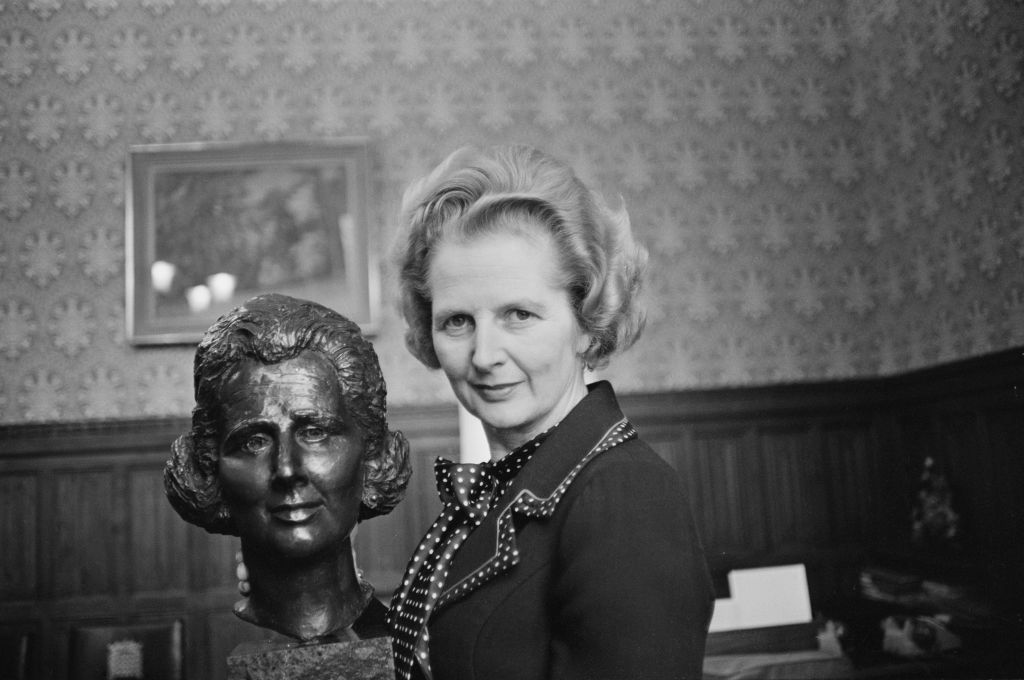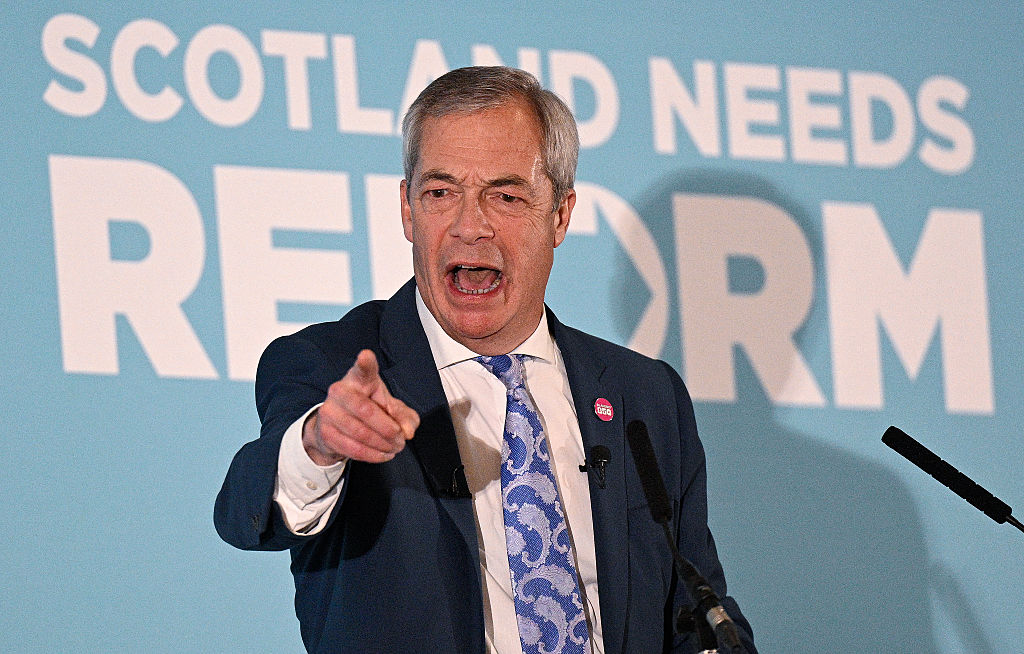Was Margaret Thatcher great for Britain?
The 'Iron Lady’ would be celebrating her 100th birthday this month. Margaret Thatcher rose to power in 1979 as the first ever female prime minister and was one of the most controversial leaders in history, but how did her policies shape today’s finances?


Get the latest financial news, insights and expert analysis from our award-winning MoneyWeek team, to help you understand what really matters when it comes to your finances.
You are now subscribed
Your newsletter sign-up was successful
Want to add more newsletters?

Twice daily
MoneyWeek
Get the latest financial news, insights and expert analysis from our award-winning MoneyWeek team, to help you understand what really matters when it comes to your finances.

Four times a week
Look After My Bills
Sign up to our free money-saving newsletter, filled with the latest news and expert advice to help you find the best tips and deals for managing your bills. Start saving today!
Margaret Thatcher was no ordinary leader. She lost popularity as fast as she had gained it, which eventually led her to resign in 1990, after holding the top spot for 11 years.
Her challenging tax policies, taming unions and in her coldest moment, removing free milk for school kids, left her infamously labelled as ‘Thatcher the milk snatcher’ and the ‘Iron Lady’.
Her Victorian family values also added to the controversy – she wasted no time introducing section 28, a law that passed in 1988, which prevented schools from promoting homosexuality or LGBTQ+ related education.
MoneyWeek
Subscribe to MoneyWeek today and get your first six magazine issues absolutely FREE

Sign up to Money Morning
Don't miss the latest investment and personal finances news, market analysis, plus money-saving tips with our free twice-daily newsletter
Don't miss the latest investment and personal finances news, market analysis, plus money-saving tips with our free twice-daily newsletter
Thatcher also refused to relax divorce laws and wanted to reinstate capital punishment.
Yet, she was the longest serving prime minister in the 20th century.
She served as prime minister between 1979 and 1990 and was the leader of the Conservative party between 1975 and 1990. Thatcher was also the first woman to become the UK prime minister.
Born 13 October 1925, the late Thatcher would have been 100 this month.
While her social policies may have divided the country, it was her economic policies that made the biggest impact. Thatcher changed the City forever and her policies continue to shape finances today. But what did she achieve and does ‘Thatcherism’ still live on today?
Thatcher’s ‘Credit Crunch’
Purse strings were tight for households as high inflation and unemployment gripped the UK in the 1980s, but Thatcher wanted them to spend. To encourage this, she relaxed rules around borrowing, making it easier for households to get credit using credit cards, hire purchase arrangements and even mortgages.
There was an overall reduction in government regulation of financial services and ultimately, people borrowed more than they could afford.
Did Thatcher’s credit boom lead to the financial crisis that followed almost 30 years later? One of the main reasons behind the 2008 financial crisis was the high risks banks took, which included dishing out risky loans and taking high risk investment opportunities.
‘The Big Bang’
‘The Big Bang’ in financial markets refers to the sudden deregulation of financial markets in the UK, when the London Stock Exchange became a private limited company.
The deregulation in 1986 removed restrictions that would then enable the UK to compete globally. Face-to-face trading was replaced with electronic trading instead, fixed commissions on trades were removed, and foreign firms were allowed to own UK companies. Thatcher changed the City forever.
But in doing so, she raised concerns that the ‘Big Bang’ would lead to ‘boom and bust’. Leaked memos almost 30 years later revealed that Thatcher’s move possibly contributed to the 2008 financial crisis. The memos, now moved to the National Archives, were reported in the Financial Times.
Pensions mis-selling
Personal pensions were launched in 1988 under Thatcher, giving people another way to save for retirement if they did not have access to workplace pensions, or just didn't want to be part of one. The idea was to reduce the burden on the state and tax liabilities.
Under the 1986 Financial Services Act, employers were unable to force employees into workplace pension schemes. Adverts were released encouraging people to ‘break the chain’ of compulsory membership.
But, her plan backfired and it led to a major pensions mis-selling scandal in the 1980s, as people opted to leave their ‘safe’ workplace pension move into arrangements with lower contributions and higher risks.
Savers had no experience of managing a personal pension, yet commission-driven advisers pushed them into these plans, where they would also not benefit from employer contributions and face higher risks.
Around two million people were advised to switch out of occupational schemes. Compensation from misselling claims are estimated to have cost the industry over £11 billion.
Right to Buy
If there was one policy that gained Thatcher popularity, it was the Right to Buy policy, allowing tenants to buy the properties they lived in.
It was part of the Housing Act 1980 which enabled people to buy the house at a discount from the market value, depending on the length of their tenancy.
The policy is still in place today in England, but discounts are smaller, slashed by Labour to between £16,000 and £38,000, down from between £102,400 and £136,400.
Over two million people have used the scheme to date, but experts believe the scheme is adding to the social housing emergency and driving shortages.
Labour has said it plans to add restrictions to the scheme by excluding newly-built social housing.
Tenants will also be required to live longer in their property to qualify to buy at a discount.
Taxes
Thatcher believed tax cuts were vital to build a healthy economy and as such, in the 1979 Budget, the then chancellor Geoffrey Howe slashed the basic rate of income tax from 33% to 30% and the top rate from 83% to 60%.
The basic rate eventually fell to 25% in 1988.
But indirect taxes went up, up from between 8% and 12% to a single rate of 15%, meaning consumers had to pay more for goods and services.
But this drove inflation to as high as 21%, which then saw the government set interest rates at 14%. It was the government that determined the base rate back then.
The poll tax was perhaps the most awful tax ever to be applied in British history, requiring everyone to pay a fixed domestic tax. Rates were set by local authorities. It started riots and a protest in London in March 1990 attracted over 100,000 people.
It’s now been replaced with council tax.
Privatisation of state-owned companies
It was under Thatcher when many people became shareholders for the first time, when she decided to privatise a number of state-run companies in the UK.
In the 1980s, Thatcher privatised a number of state-owned companies which include British Telecom, British Airways, British Aerospace and Rolls-Royce.
The idea was to make them more efficient, reduce government debt, but also enable people to hold a stake in these companies by becoming shareholders.
Many may remember the ‘Tell Sid’ campaign when British Gas shares went public.
While supporters of privatisation saw this as a positive move that would lead to reduced costs and stronger profits, it also drove prices higher for consumers, and services were driven purely by markets.
Margaret Thatcher eventually resigned in 1990 after her leadership was challenged and her support ebbed away. She was succeeded by John Major.
Thatcher passed away at the Ritz in London in April 2013.
Get the latest financial news, insights and expert analysis from our award-winning MoneyWeek team, to help you understand what really matters when it comes to your finances.
Kalpana is an award-winning journalist with extensive experience in financial journalism. She is also the author of Invest Now: The Simple Guide to Boosting Your Finances (Heligo) and children's money book Get to Know Money (DK Books).
Her work includes writing for a number of media outlets, from national papers, magazines to books.
She has written for national papers and well-known women’s lifestyle and luxury titles. She was finance editor for Cosmopolitan, Good Housekeeping, Red and Prima.
She started her career at the Financial Times group, covering pensions and investments.
As a money expert, Kalpana is a regular guest on TV and radio – appearances include BBC One’s Morning Live, ITV’s Eat Well, Save Well, Sky News and more. She was also the resident money expert for the BBC Money 101 podcast .
Kalpana writes a monthly money column for Ideal Home and a weekly one for Woman magazine, alongside a monthly 'Ask Kalpana' column for Woman magazine.
Kalpana also often speaks at events. She is passionate about helping people be better with their money; her particular passion is to educate more people about getting started with investing the right way and promoting financial education.
-
 Should you buy an active ETF?
Should you buy an active ETF?ETFs are often mischaracterised as passive products, but they can be a convenient way to add active management to your portfolio
-
 Power up your pension before 5 April – easy ways to save before the tax year end
Power up your pension before 5 April – easy ways to save before the tax year endWith the end of the tax year looming, pension savers currently have a window to review and maximise what’s going into their retirement funds – we look at how
-
 Tony Blair's terrible legacy sees Britain still suffering
Tony Blair's terrible legacy sees Britain still sufferingOpinion Max King highlights ten ways in which Tony Blair's government sowed the seeds of Britain’s subsequent poor performance and many of its current problems
-
 The state of Iran’s collapsing economy – and why people are protesting
The state of Iran’s collapsing economy – and why people are protestingIran has long been mired in an economic crisis that is part of a wider systemic failure. Do the protests show a way out?
-
 Modern Monetary Theory and the return of magical thinking
Modern Monetary Theory and the return of magical thinkingThe Modern Monetary Theory is back in fashion again. How worried should we be?
-
 The war dividend – how to invest in defence stocks as the world arms up
The war dividend – how to invest in defence stocks as the world arms upWestern governments are back on a war footing. Investors should be prepared, too, says Jamie Ward
-
 Who is Christopher Harborne, crypto billionaire and Reform UK’s new mega-donor?
Who is Christopher Harborne, crypto billionaire and Reform UK’s new mega-donor?Christopher Harborne came into the spotlight when it emerged he had given £9 million to Nigel Farage's Reform UK. How did he make his millions?
-
 How Germany became the new sick man of Europe
How Germany became the new sick man of EuropeFriedrich Merz, Germany's Keir Starmer, seems unable to tackle the deep-seated economic problems the country is facing. What happens next?
-
 Cringe Britannia: the decline of the UK's soft power
Cringe Britannia: the decline of the UK's soft powerBritain has long wielded soft power through its commitment to sound political values and the export of high and popular culture. That is now under threat
-
 Investors need to get ready for an age of uncertainty and upheaval
Investors need to get ready for an age of uncertainty and upheavalTectonic geopolitical and economic shifts are underway. Investors need to consider a range of tools when positioning portfolios to accommodate these changes
